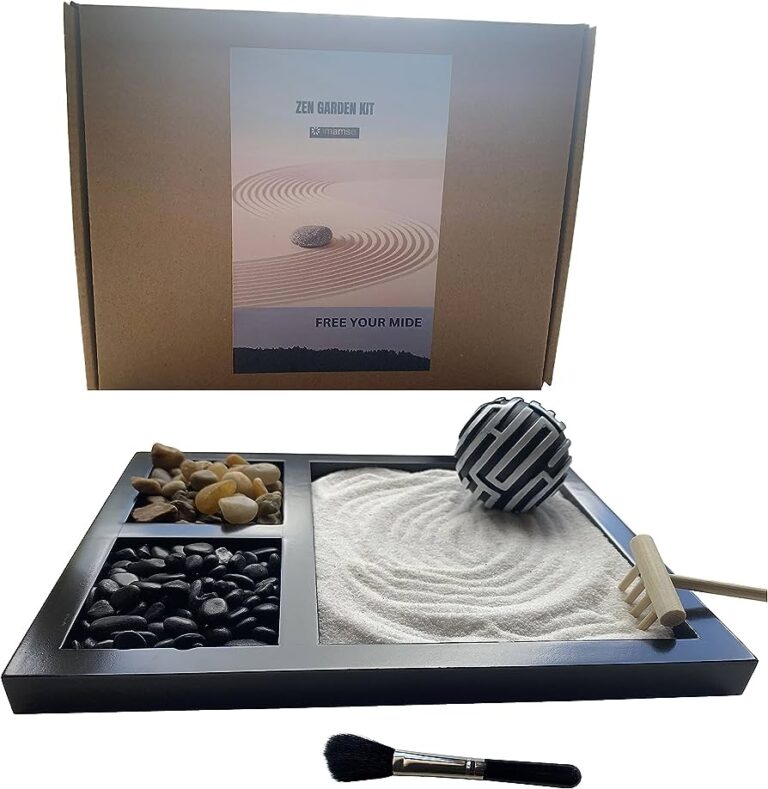Mindfulness practices are effective for reducing stress and promoting well-being. Mindfulness practices, such as meditation and deep breathing exercises, have been widely embraced for their ability to reduce stress and improve overall well-being.
By bringing awareness to the present moment and accepting it without judgment, individuals can effectively reduce stress levels and enhance their mental and physical health. These practices cultivate a sense of inner peace and relaxation, allowing individuals to navigate through daily challenges with greater clarity and resilience.
As a result, integrating mindfulness practices into daily routines can lead to improved emotional well-being, increased focus and productivity, and enhanced overall quality of life. So whether it’s a few minutes of deep breathing exercises or a longer meditation session, incorporating mindfulness practices can be a game-changer in managing stress and promoting a healthier, more balanced life.

Credit: medium.com
Understanding The Connection Between Mindfulness And Stress
Understanding how mindfulness practices can reduce stress is crucial for promoting mental and physical health. The impact of stress on our well-being cannot be understated. Mindfulness, a practice rooted in self-awareness and being present in the moment, offers a powerful tool for stress reduction.
By focusing on the present moment without judgment, individuals can cultivate a sense of calm and improve their overall resilience to stress. Mindfulness allows us to observe our thoughts and emotions without becoming overwhelmed by them, which can help break the cycle of stress and anxiety.
Incorporating mindfulness practices such as deep breathing exercises, meditation, and mindful movement into our daily routine can help manage stress levels, improve sleep quality, and enhance our overall well-being. By prioritizing mindfulness, we can foster a healthier and more balanced life.
Research-Backed Benefits Of Mindfulness
The benefits of mindfulness have been extensively researched, providing evidence of its positive impact on various aspects of our well-being. Practicing mindfulness has shown improvements in mental clarity and focus, allowing individuals to be more present in their daily lives.
It has also been found to reduce symptoms of anxiety and depression, offering relief from the burden of these mental health conditions. Moreover, mindfulness practices contribute to enhancing emotional well-being and resilience, helping individuals cope better with challenges. By cultivating mindfulness, individuals can experience a sense of calm and balance, leading to a more positive outlook on life.
Incorporating mindfulness into our routines can be a powerful tool for stress reduction and overall mental health.
Mindful Breathing: A Simple And Effective Practice
Mindful breathing is a simple yet effective practice for stress reduction. Deep breathing exercises can promote relaxation by bringing awareness to the present moment and enhancing mindfulness. By focusing on the breath, we can cultivate a sense of calm and center ourselves in the midst of daily stressors.
Breath control allows us to regulate our emotions and bring balance to our thoughts. Through intentional inhalation and exhalation, we can find solace in the rhythm of our breath. This practice can be done anytime, anywhere, making it a convenient tool for managing stress and finding inner peace.
So, take a moment to engage in mindful breathing and experience the transformative power it can have on your well-being.
Body Scan Meditation: Cultivating Mind-Body Awareness
Body scan meditation is a powerful mindfulness practice that cultivates awareness of the mind-body connection. By scanning the body for tension and consciously releasing it, we can foster a deeper sense of presence in the present moment. This practice helps to alleviate stress by allowing us to notice and release physical and mental tension.
It offers numerous benefits, such as promoting relaxation, improving sleep quality, reducing anxiety, and enhancing overall well-being. Through this practice, we can develop a greater understanding of how stress manifests in our bodies and learn to release it. By regularly practicing body scan meditation, we can cultivate a sense of peace and tranquility, even amidst the chaos of daily life.
So, why not give it a try and experience the profound impact it can have on your overall well-being?
Mindful Walking: Finding Peace In Every Step
Mindful walking is a powerful practice for reducing stress and finding inner peace. It involves heightening awareness and staying present as you take each step. By focusing on the sensations in your body and the environment around you, you can cultivate a sense of mindfulness.
Walking can also serve as a moving meditation, allowing you to connect with your breath and bring a calm and centered state of mind to your daily routine. Incorporating mindfulness into your walks can be done in various ways, such as taking slow, deliberate steps and noticing the sensations in your feet touching the ground.
Engaging all your senses, observing nature or the cityscape, can also help you stay fully present in the moment and experience the joy of mindful walking.
Establishing A Mindfulness Routine
Establishing a mindfulness routine involves setting aside dedicated time to practice. It’s important to create a sacred space for meditation, where you can find tranquility and focus. Integrating mindfulness into everyday activities can also be beneficial, bringing awareness and presence to simple tasks.
By incorporating mindfulness into your daily life, you can experience a reduction in stress and an increase in overall well-being. Give yourself the gift of mindfulness and discover its power to enhance your mental and emotional harmony. Embrace the practice and watch as stress melts away, leaving room for clarity and inner peace.
Take the time to prioritize yourself and make mindfulness a part of your daily routine – the benefits are immeasurable. Start now and make stress reduction a priority in your life.
Overcoming Challenges And Maintaining Consistency
Mindfulness practices are effective for reducing stress. However, there are common obstacles that can hinder consistent practice. Resistance and distractions can often lead individuals away from their mindfulness routines. To overcome this, it is essential to develop effective strategies. These may include setting specific goals, creating a dedicated space, and establishing a consistent daily routine.
Additionally, it can be helpful to explore different mindfulness techniques to find the ones that resonate best. To maintain consistency, it is important to integrate mindfulness into daily life. This can be achieved by incorporating it into everyday activities, practicing gratitude, and staying mindful of the present moment.
By incorporating these strategies and making mindfulness a priority, individuals can overcome challenges and maintain consistency in their practice.
Applying Mindfulness To Stressful Situations
Applying mindfulness techniques during moments of stress can be incredibly helpful in managing anxiety and overwhelm. By practicing mindfulness, individuals are able to cultivate a sense of awareness and presence in the present moment, allowing them to observe their thoughts and emotions without judgment.
This supports a calmer and more balanced state of mind in the face of stressful situations. With mindfulness-based stress reduction, individuals can apply these principles to their daily lives, integrating mindfulness practices into various activities such as walking, eating, or even simple moments of pause throughout the day.
By staying present and centered, individuals can develop a greater capacity to respond to stress with clarity and resilience. Mindfulness is a powerful tool for stress reduction that can be accessed by anyone, anytime, anywhere, supporting overall well-being and emotional balance.
Conclusion
As you incorporate mindfulness practices into your daily routine, you will begin to experience the profound benefits they offer for stress reduction. By focusing on the present moment and intentionally cultivating feelings of calm and gratitude, you can train your mind to become more resilient in the face of stressors.
Engaging in mindful breathing exercises, body scans, and mindful eating can help you become more attuned to your body and create a sense of inner peace. Additionally, practicing mindfulness regularly can improve your overall well-being, including your mental, emotional, and physical health.
Remember, consistency is key when it comes to mindfulness. So, dedicate a few minutes each day to these practices, and watch as your stress levels decrease and your overall quality of life improves. May you find peace and tranquility on your mindfulness journey!



















+ There are no comments
Add yours